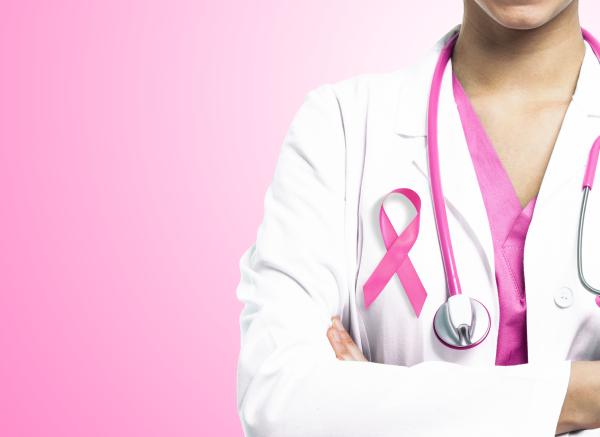Since we love awareness days and months, October gave us the chance to promote Breast Cancer education and prevention. In that spirit, we invited Stanford-educated, surgical oncologist Dr. Ogori Kalu to our Manhattan office for a facebook live video streaming session to help educate the masses. And, that she did! (1)
Today marks the inauguration of our new Making the Rounds series. To kick things off, with Dr. Kalu’s assistance, we will debunk some myths about what causes breast cancer.
Myth #1 Deodorant
Dr. Kalu: No, there is no evidence to support any cause and effect.
Myth #2 Underwire bras
Dr. Kalu: No, there is no data to support that underwire bras cause cancer. It is believed that any disruption in the lymphatic drainage can be a contributing factor, so the myth likely began from the idea that the wire compressed that system.
Myth #3 Breast Implants
Dr. Kalu: Breast implants do not cause breast cancer, though they have been linked to Anaplastic Large Cell Lymphoma. This is treatable and extremely rare in women. The presentation is typically much later and believed to be due to a reactive process once placed inside the body. Fluid accumulates around the implant in a capsule. Cure is traditionally achieved by taking out the capsule and implant.
Myth #4 Radiation
Dr. Kalu: Yes, radiation has been linked to breast cancer. This answer needs to be qualified since exiting the house exposes us to radiation on a daily basis. When doctors talk about radiation, we are specifically referring to treatment level radiation from a prior cancer, for example. This would not include a handful of chest or dental X-rays.
Myth #5 Microwaves
Dr. Kalu: For a microwave to prompt a considerable exposure, a person would have to stand in front of it while in use twenty-four hours a day. Since no one does this, the likelihood of damage or link to breast cancer is extremely low.
Take Home Messages
What do we know about breast cancer? To learn more about risks, treatments and the future of breast health, please refer to the below “Notes” section where you will also learn more about Dr. Kalu (2).
Our extensive discussion with Dr. Kalu earlier prompted the following:
- Any woman is at risk for breast cancer.
- 1% of overall cases occur in men — typically with a family history. There is speculation that this rate is higher in ex-veterans due to possible chemical warfare in Korea, Vietnam and earlier historical times. Usually presents around or behind the nipple. Due to male anatomy, men often detect it sooner since it is more superficial.
- Abnormal mammograms are the most common way to present with annual screening starting at age 40 (serves to increase detection).
- Mammograms for 40-75 years of age are tried and true being the best tool we have currently to detect early stage breast cancer.
- Because mammograms are suboptimal in those under age 40, self breast exams, knowledge of family history and regular care with a physician are especially important in this younger demographic. These clinicians should be performing breast exams as well.
- The conversation of breast health should begin with the pediatrician.
- Breast cancer can occur in your 20s. Due to lack of appropriate screening at that age, close monitoring with a regular doctor and knowing your body can be essential measures for continued well-being
- If diagnosed with dense breasts, then following with a breast specialist or breast surgeon is advisable.
- Know your family history and discuss with your doctor your level of risk.
Most importantly, if just diagnosed with breast cancer, Dr. Kalu advises “It is important for women to know this is not a death sentence and they should realize there are many options. The approach should be a multidisciplinary one to optimize the whole patient’s survival benefit. There are different surgical and medical treatment options - and, new therapies and research constantly being done. I am optimistic about the strides we have made and the advances just around-the-corner.”
NOTES:
- Video of this facebook live stream can be found on the American Council on Science and Health (ACSH) facebook page, so click here.
- Ogori N Kalu, MD, MS Breast Surgical Oncologist and Breast Health Specialist

Dr. Kalu was born and raised in New York City. She attended Temple University for her undergraduate degree, with a dual major of Biology and Africana Studies. Then, she attended New York Medical College, where she received a medical degree and Master’s degree in Biochemistry. Dr. Kalu completed her General Surgery residency at The State University of New York Health Sciences -Downstate Medical Center. She went on to Stanford University in California to complete a Breast Surgical Oncology fellowship.
Dr. Kalu’s career is dedicated to breast health education and breast cancer treatment in minority communities. She has publications in numerous medical and surgical journals, and has presented at national and international medical conferences. Her clinical career started as Medical Director of the Breast Center at Hackensack University Medical Center-Mountainside in Montclair, NJ. Subsequently, she was appointed director of Breast Surgery at Rutgers NJ Medical School-University Hospital in Newark NJ - a position she held for four years. Dr. Kalu is currently at St. Michael’s Medical Center, and is working with Prime Healthcare to develop a breast center at St. Mary’s Hospital in Passaic, NJ. Dr. Kalu is a resident of South Orange, NJ.
To contact Dr. Ogori Kalu: onkalu@gmail.com




